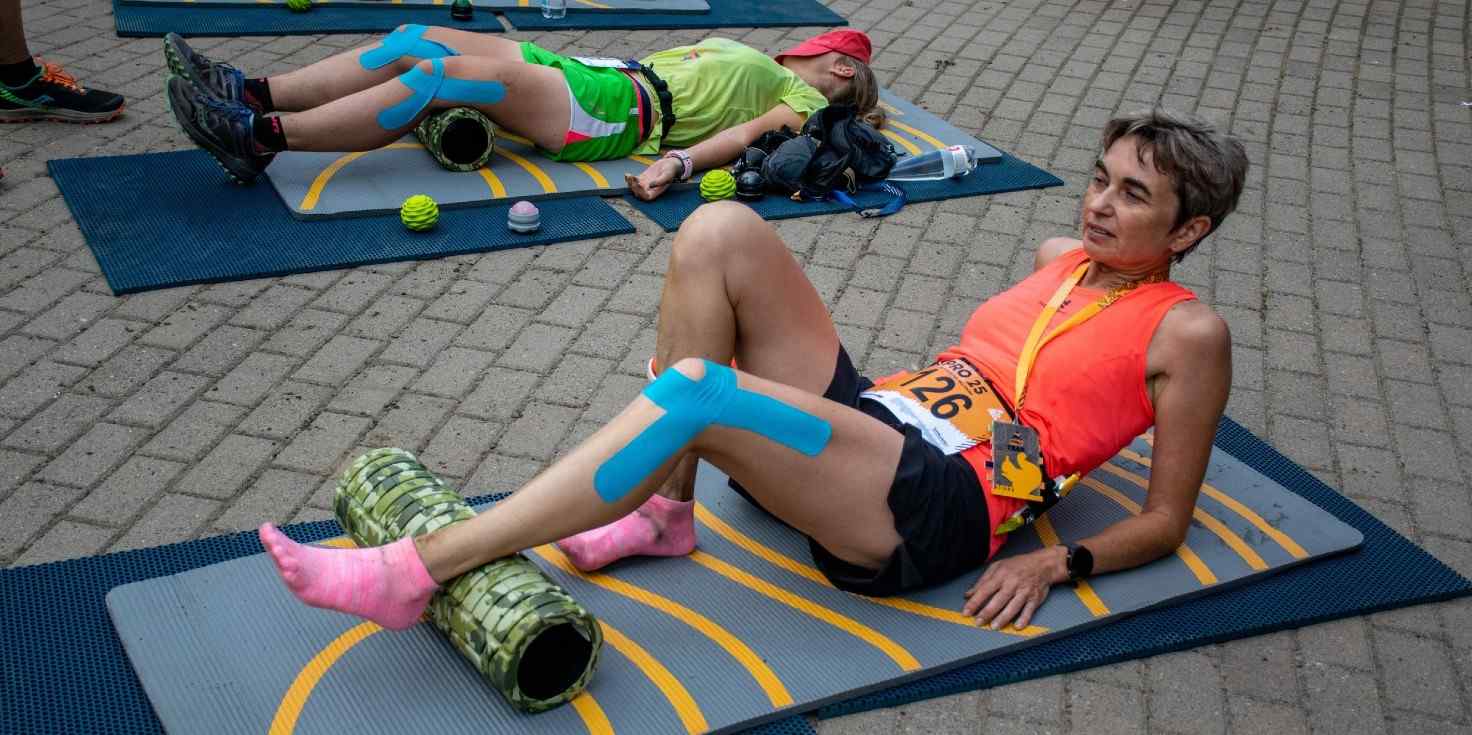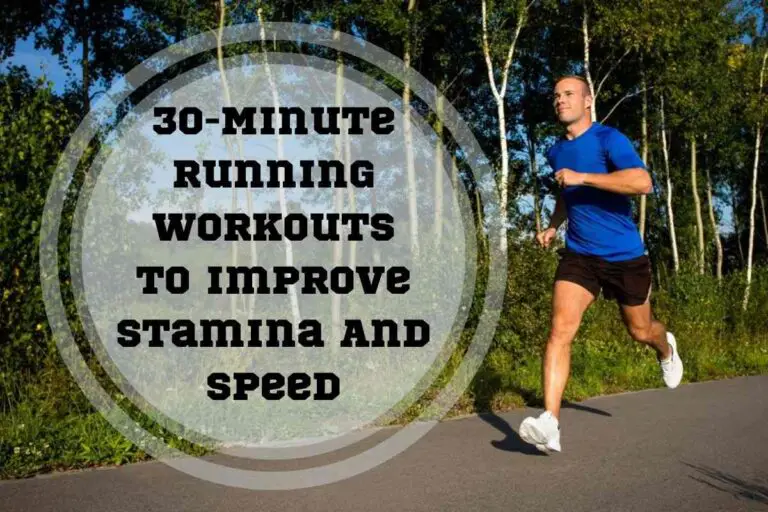Is an 8 minute mile good result for running: Right Pace and 5 Tips to Run Faster
Reviewed by: Sergii Putsov (PhD in Sport Science)
Do you want to start running a mile in 8 minutes? When training for an endurance race, it’s great to keep track of your progress and improve your pace. Measuring your time against your goal is beneficial to help you see improvement. But is an 8-minute-mile pace a good result?
Is an 8-Minute Mile a Good Pace for Runners?
An 8-minute-mile pace is a good result for the average runner. The average pace for running a mile for the beginner runner is 12–15 minutes. A non-competitive runner takes 9–10 minutes, and an elite marathon runner can expect to achieve a pace of approximately 4–5 minutes per mile.
Is an 8 Minute Mile a Good Result?
The world record for the fastest one-mile was set by Hicham El Guerrouj, with an outstanding result of 3:43.13.
How fast athletes can perform is dependent on factors including age, genetics, and sex, but is more influenced and determined by a person’s fitness level.

Is an 8 Minute Mile Good For a Man?
An 8-minute-mile pace is a great result for a man, depending on his age and fitness level. Elite male marathon runners often run at a faster pace than elite female athletes due to their increased muscle mass in comparison. Men have more fast-twitch muscles in their legs, which can increase their speed.
The table below indicates the average speed per mile in a 5-km run for males according to their age:
| Age | Minutes Per Mile |
|---|---|
| 16 – 19 | 9:34 |
| 20 – 24 | 9:30 |
| 25 – 29 | 10:03 |
| 30 – 34 | 10:09 |
| 35 – 39 | 10:53 |
| 40 – 44 | 10:28 |
| 45 – 49 | 10:43 |
| 50 – 54 | 11:08 |
| 55 – 59 | 12:08 |
| 60 – 64 | 13:05 |
| 65 – 99 | 13:52 |
Is an 8 Minute Mile Good For a Woman?
Running a mile in 8 minutes is an excellent result for a woman and can be achieved by anyone who puts in the time and appropriate training, depending on their level of fitness as well as their age.
The table below indicates the average speed per mile in a 5-km run for females according to their age:
| Age | Minutes Per Mile |
|---|---|
| 16 – 19 | 12:09 |
| 20 – 24 | 11:44 |
| 25 – 29 | 11:42 |
| 30 – 34 | 12:29 |
| 35 – 39 | 12:03 |
| 40 – 44 | 12:24 |
| 45 – 49 | 12:41 |
| 50 – 54 | 13:20 |
| 55 – 59 | 14:37 |
| 60 – 64 | 14:47 |
| 65 – 99 | 16:12 |
As per the graph showing the results of the average woman per age category, an 8-minute mile pace is a great achievement.
Men have a definitive advantage in having a faster speed when running, especially for shorter distances. However, females might have the advantage when it comes to long-distance running due to the physiological and decision-making differences between men and women.
8-Minute Mile Pace
Pace is one of the most important aspects of running and is essential for those wanting to compete at an elite level of running. Pace refers to the number of minutes it takes for someone to run one mile or kilometer and can impact how fast one can finish a race, and being able to control your pace will help with your performance.
For example, slowing down your pace and taking longer to complete a mile at the beginning of the race helps runners conserve energy for the first few miles. As they approach the finish line, they can then quicken their stride. But overall, achieving an 8-min-mile marathon time is an excellent pace.
It’s important, if you’re new to running and want to improve your performance, to focus on your pace.
The following table shows how fast you need to run in miles to reach a specific pace while running, according to a study by the University of Northern Colorado:
| Miles Per Hour | Minutes Per Mile | 5 km | Half Marathon | Marathon |
|---|---|---|---|---|
| 4.97 mph | 12:04 | 00:37:30 | 02:38:15 | 05:16:30 |
| 5.41 mph | 11:06 | 00:34:28 | 02:25:31 | 04:51:02 |
| 5.97 mph | 10:04 | 00:31:15 | 02:11:52 | 04:23:45 |
| 6.65 mph | 9:01 | 00:28:02 | 01:58:19 | 03:56:38 |
| 7.46 mph | 8:03 | 00:25:00 | 01:45:30 | 03:31:00 |
| 8.57 mph | 7:00 | 00:21:44 | 01:31:44 | 03:03:28 |
| 10.00 mph | 6:00 | 00:18:38 | 01:18:38 | 02:37:16 |
| 11.99 mph | 5:00 | 00:15:32 | 01:05:35 | 02:11:11 |
7 Workouts to Help You to Run a Mile within 8 Minutes
So achieving an 8-minute mile pace is a great target and challenge to accomplish in order to run in a competitive but doable time. But achieving this time doesn’t come without training for the average person and will require you to set specific goals to achieve or beat this specific time.
Here is a great week-by-week program you can follow, which, if you stick to it diligently, you should find yourself reaching that 8-minute mile marathon in just a few weeks, depending on your commitment and mental and physical ability.
1. Resistance Training
To improve your running, it is important to strengthen your upper body, core, and legs with a full-body workout and resistance training at least once a week as opposed to just running.
A few exercises to help you become a healthier and stronger runner include:
- Bodyweight exercises – squats, lunges, planks, box jumps, crunches, etc.
- Weighted exercises – dumbbell lunges, kettlebell swings, bent-over dumbbell rows, dumbbell deadlifts.

2. Speed Training Exercises
To improve your speed, you’ll need to incorporate speed training exercises into your regime, as it is theorized that this prepares you mentally to run at a quicker pace and helps stimulate the recruitment of fast-twitch muscle fibers.
A few beneficial speed training techniques to achieve a speed of 8 minutes per mile are:
- Fartlek training
- Hill sprints
- Interval training
- Strides
- Tempo running
Subscribe to Our Running Newsletter!
Get free running tips from renowned professional athletes and discounts from top-notch brands.
3. Active Recovery
Active recovery is beneficial between intense workouts as it keeps your blood flowing and helps muscles rebuild and recover from intense physical activity. This involves low-intensity exercises such as:
- Yoga
- Swimming
- Walking
4. Incorporate a Tempo Run
A tempo run is a long run that you’ll complete at a pace you can maintain comfortably throughout the entire route. This can be done by steadily running two to three miles, and throughout each tempo run, work toward gradually increasing the speed and length of the run as you progress.
5. Recover
Use day five to rest completely, as performing a tempo run can be challenging and strenuous on the body. You’ll need to give yourself that time to recover.
6. Endurance Run
To increase your endurance, you’ll need to practice just that and test your mental and physical boundaries with a longer run. We recommend this be your longest run of the week, and it’s best to maintain a speed balance between your tempo and active recovery runs. Start with a 3-mile run and push yourself to increase the distance every week until you reach 10 miles.
7. Recover
It might seem contradictory, but in order to keep progressing, you’ll need to give your body some more time to recover. On day seven, spend your time relaxing and recuperating to fuel yourself for the following week’s activities.
By following the routine of the first week, you should be able to start to see an improvement in your running time, and by sticking to it, you’ll soon be running a mile in 8 minutes. Using progressive overload, challenge yourself to achieve a 10% weekly overall pace improvement. There’s no need to push yourself too hard because even a slightly more difficult challenge can get you to the results you desire.

5 Main Tips How to Run an 8-Minute Mile Faster
While every runner needs to find their own stride to achieve the 8-minute mile marathon time, there are a few universal truths and tips that, if you stick to them, will help you achieve your goals. Here are our main tips for reaching your 8-minute mile pace:
Tip 1: Always Stretch
Whether it’s before or after a run or during your active recovery days, never skip an opportunity to stretch out your body. Stretching is an essential part of preventing injury, and stiff or tight muscles.
Tip 2: Fuel Your Body Correctly
It’s crucial to ensure you’re eating the right food and hydrating your body after runs to give your muscles the necessary nutrients to mend and develop. A lack of water and salt could lead to dehydration, potentially causing cramps and headaches.
You should ensure you’re eating enough:
- Healthy carbohydrates – to replenish your energy levels
- Protein – for muscle growth
Tip 3: Hill Training is Your Friend
Hill training can be one of the best strategies to prepare you to run an 8-minute mile. It increases your endurance and cardiovascular fitness. All you have to do is run up a steep hill and then coast back down, repeating this multiple times.
Tip 4: Work on Your Aerobic and Anaerobic Fitness
Having the ability to sustain moderate-intensity activities for an extended period (aerobic) and endure high-intensity activities for brief periods (anaerobic) is equally important in helping you run an 8-minute mile faster.
Tip 5: Prioritize Rest
Rest days are an integral part of injury prevention, and when you’re participating in intensive workouts throughout the week, you need to allow your body an adequate amount of rest. One important aspect of prioritizing your rest is ensuring you’re forming healthy sleep habits.
Frequently Asked Questions About How Run a Mile Per 8 Minutes
How Fast is an 8-Minute Mile?
An 8-minute mile requires athletes to run at a speed of approximately 7.5 mph. So, this is a relatively fast speed, seeing as the average non-competitive runner’s pace is between 9 and 10 minutes per mile (5–6 mph).
How to Run a Mile in 8 Minutes Without Training?
Running an 8-minute mile is no small feat, so unless you are incredibly fit and have excellent aerobic and anaerobic capabilities, you will need to train to achieve this goal. A highly determined and relatively fit runner can achieve an 8-minute mile in three months when following a good training regime.
How Many Calories Will You Burn in an 8-Minute Mile?
The average woman will burn 663 calories per hour when running at an 8-minute-mile pace (7.5 mph). The average male will burn approximately 716 calories per hour at this same pace.
Final Thoughts on How Run a Mile Per 8 Minutes
Running an 8-minute mile is nothing short of brilliant; this pace doesn’t come naturally to the average runner. With dedication, perseverance, and the right training, you’ll be able to achieve this milestone within 3 months. Have any tips to add, feel free to share them with us in the comments.
Also read:
- 5k Training Plan Advanced
- Bad Running Form
- Hip Stretches For Runners
- Big Toe Hurts After Running
- 3 Day a Week Running Plan for Marathon
- Asics Vs. New Balance
- Best Running Shoes for Older Men
- Do Nike Shoes Run Big, Small, or True to Size?
- Best Treadmill for Tall Runners
References:
- Running Pace Conversion Chart // University of Northern Colorado: https://www.unco.edu/campus-recreation/pdf/intramural-sports/spring20/running-pace-chart.pdf
- Weekly Training Frequency Effects on Strength Gain: A Meta-Analysis // SpringerOpen: https://sportsmedicine-open.springeropen.com/articles/10.1186/s40798-018-0149-9
- The benefits and limits of speed training for endurance runners // World Athletics: https://worldathletics.org/personal-best/performance/speed-training-endurance-runners-benefits-limits
- What You Need to Know About Active Recovery Exercise // Healthline: https://www.healthline.com/health/active-recovery
- Progression of volume load and muscular adaptation during resistance exercise // PMC: https://www.ncbi.nlm.nih.gov/pmc/articles/PMC4215195/
- Guide to stretches // MayoClinic: https://www.mayoclinic.org/healthy-lifestyle/fitness/multimedia/stretching/sls-20076840
- Sleep and Athletic Performance // Current Sports Medicine Reports: https://journals.lww.com/acsm-csmr/fulltext/2017/11000/sleep_and_athletic_performance.11.aspx
If you have any questions or suggestions, you can contact us via email – [email protected]






